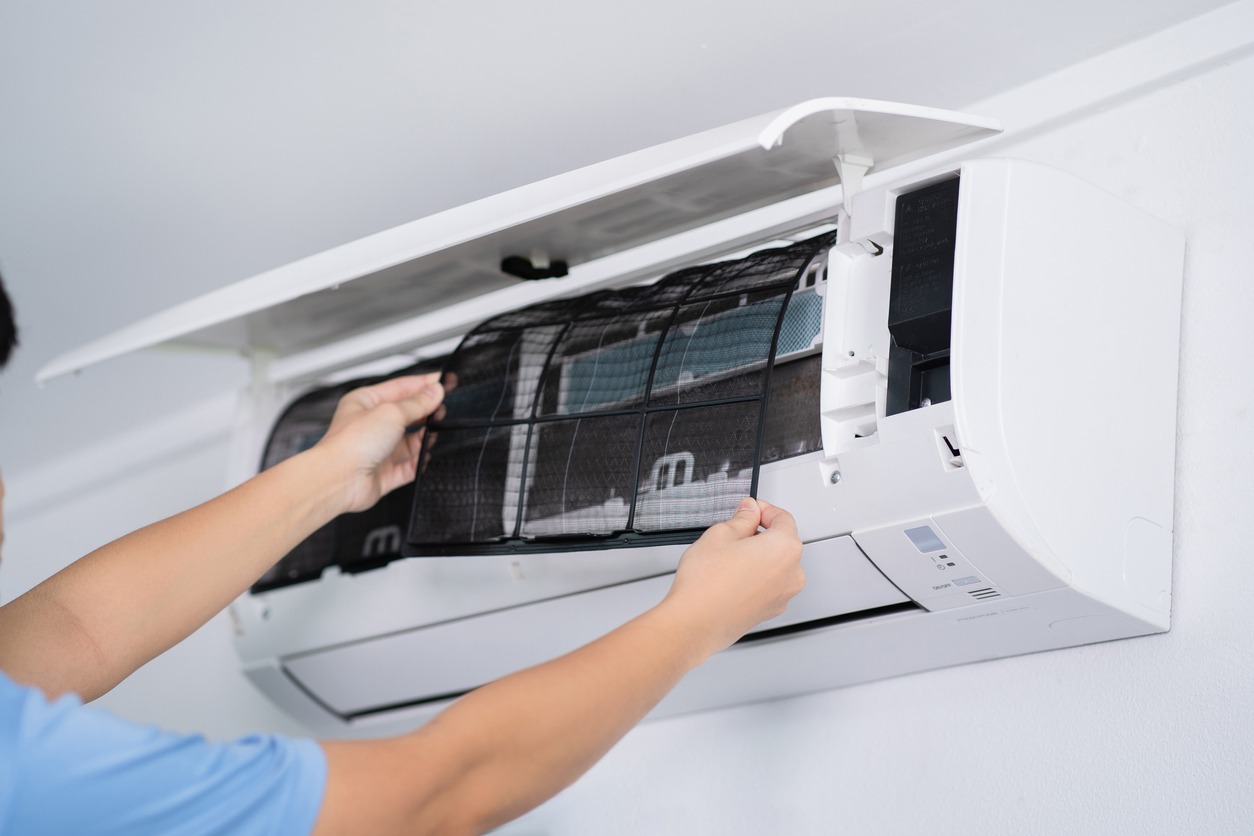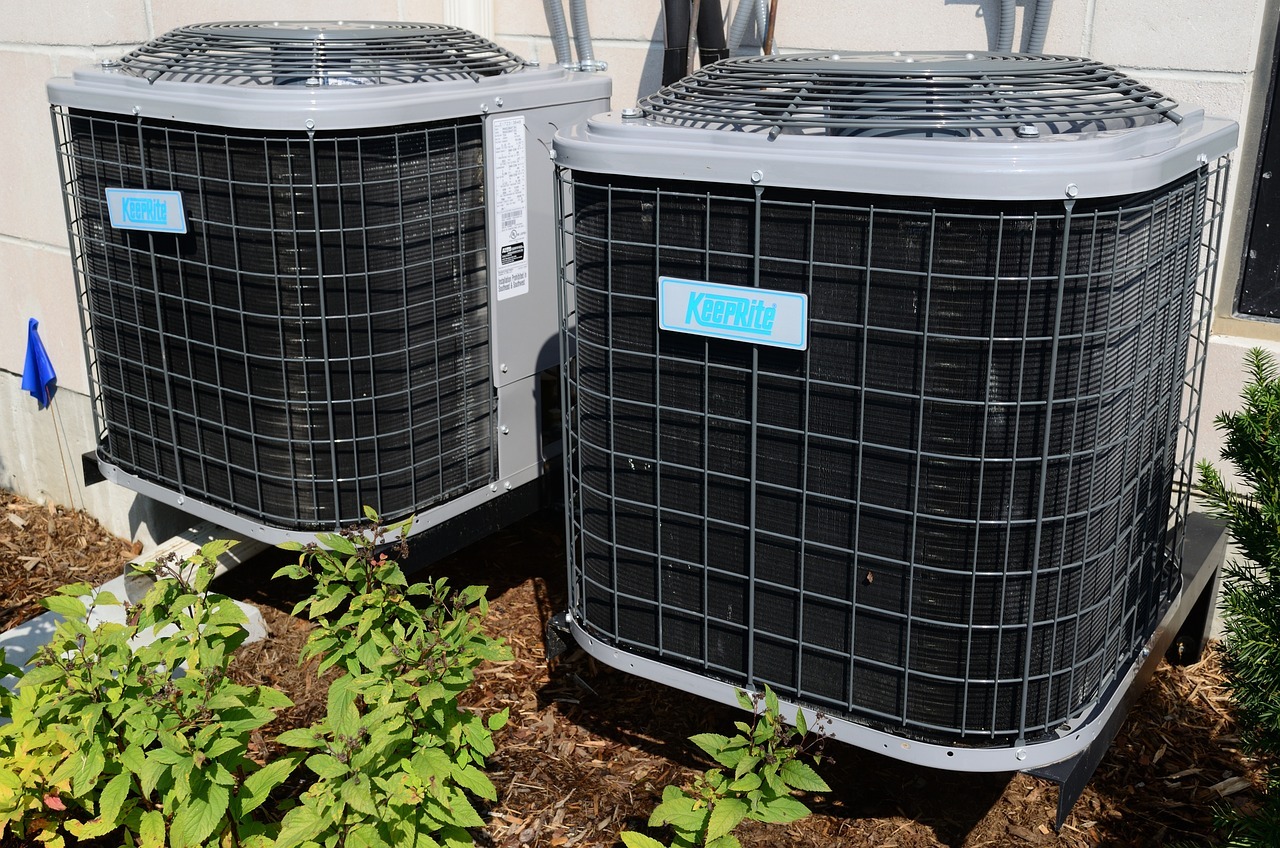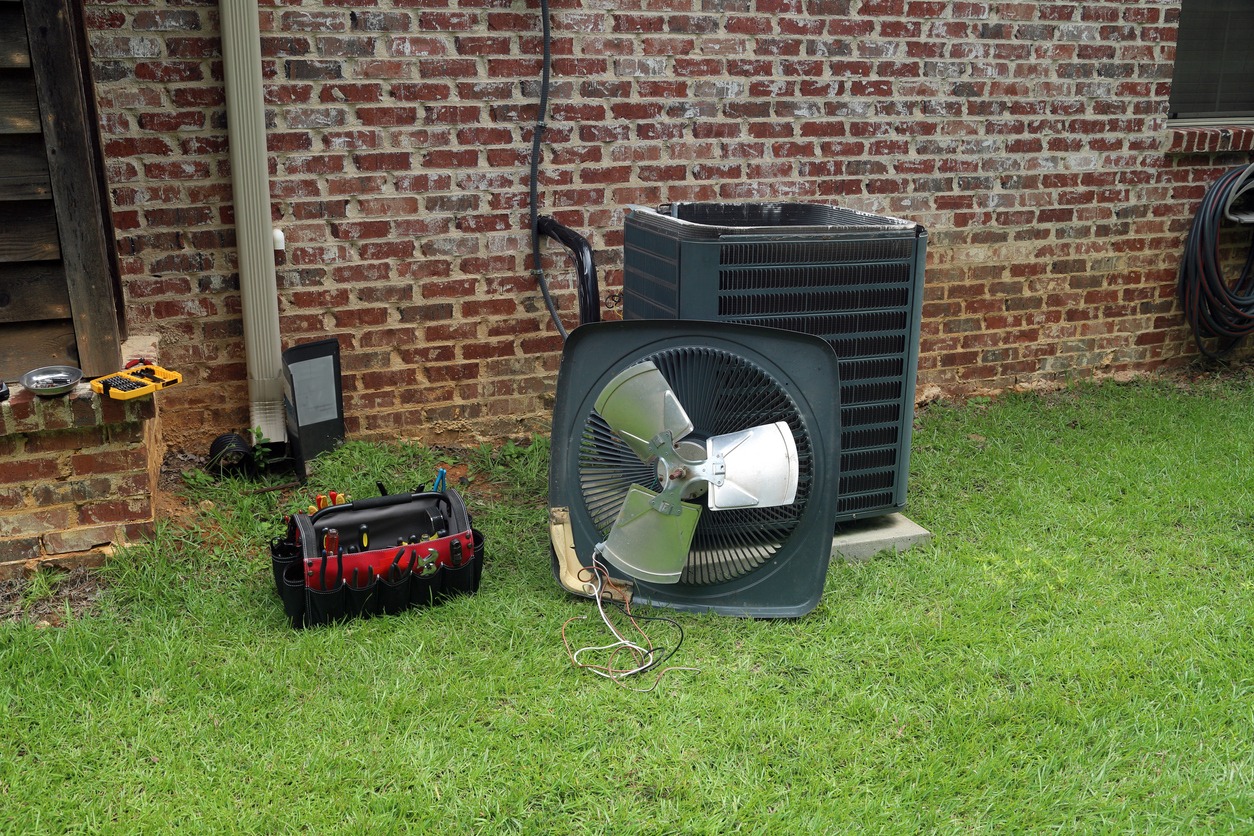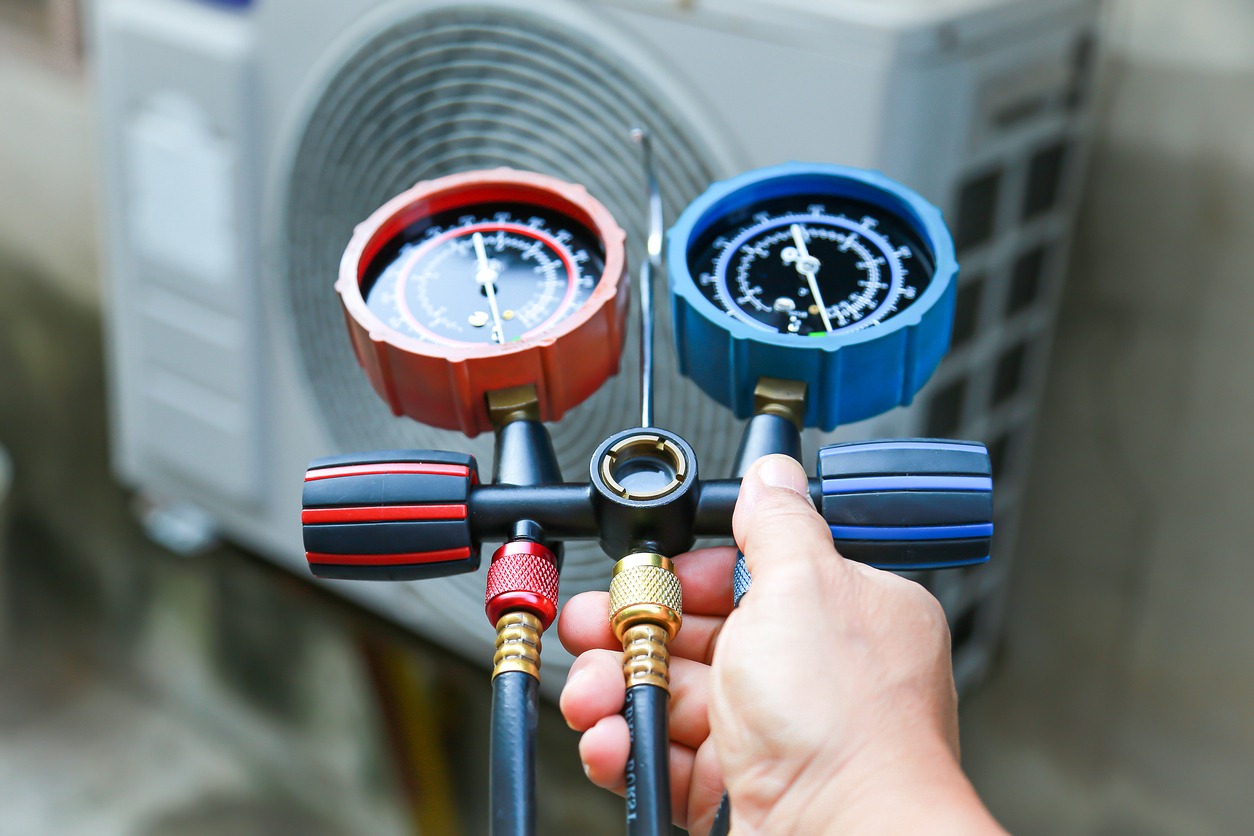Compressor overheating can lead to significant downtime and costly repairs, making preventive maintenance an essential practice for any business relying on these critical systems. The audience for this article is primarily facility managers, maintenance professionals, and business owners who depend on compressors for their operations. The purpose is to provide actionable advice on how to maintain compressors effectively to prevent overheating, thereby ensuring operational continuity and cost savings. Adopting an informative and authoritative tone will help convey the importance of the maintenance strategies discussed while also instilling confidence in the recommended procedures. By understanding the risks associated with compressor overheating and implementing a robust preventive maintenance plan, businesses can protect their investments and maintain peak performance.
Understanding Compressor Overheating
At the core of your air conditioning system lies the compressor, a vital component tasked with pressurizing refrigerant and propelling it through the cooling mechanism. Its role is central to the heat exchange process, necessitating its efficient operation. Despite its importance, the compressor is prone to overheating, a condition that can severely impair both performance and longevity of the system.
Compressor overheating typically arises from operating under extreme stress or encountering unusual conditions. An overheated compressor may cease functioning or, in more severe cases, lead to an expensive system failure. Prompt recognition of the problem is crucial to prevent minor issues from escalating into major, costly repairs.
A myriad of factors can induce compressor overheating. Neglected maintenance, clogged air filters, insufficient refrigerant levels, and malfunctioning electrical components can all impose additional stress on the compressor, pushing its temperature to unsafe heights. Environmental influences, such as elevated ambient temperatures and poor ventilation around the unit, can also force the compressor to exert extra effort, heightening the risk of overheating.
Dirty or blocked condenser coils are another common culprit. When these coils are unable to release heat effectively, the compressor must work overtime to make up for the compromised heat dissipation.
Moreover, improper installation or incorrect sizing of the AC system can trigger frequent cycling of the compressor, causing wear and tear as well as overheating due to the repeated stress of start-ups.
A thorough understanding of how compressors function and the factors that lead to overheating is vital for proactive intervention. The subsequent sections of this article will delve into preventive maintenance measures that can alleviate the undue stress leading to compressor overheating. By ensuring your AC system is well-maintained, clean, and functioning correctly, you can significantly diminish the likelihood of compressor-related issues.
Signs of Compressor Overheating
Recognizing the early signs of compressor overheating is key to averting significant damage to your AC system. Stay alert for these indicators that suggest your system may be under duress:
- Tripped Circuit Breakers: An overheating compressor can cause circuit breakers to trip as a protective measure against electrical overloads. If your AC triggers the circuit breaker upon startup, it’s possible the compressor is drawing excessive power due to difficulty in operation.
- Warm Air Emission: When cool air is replaced by warm air from your AC vents, it’s a potential sign that the compressor is not effectively compressing the refrigerant, possibly because of overheating.
- Unusual Sounds: Listen for knocking, rattling, or screeching from the outdoor unit, as these noises may indicate the compressor is operating under stress.
- System Shutdown: To prevent damage, modern AC systems may automatically shut down if the compressor reaches a critical temperature.
- Energy Bill Increase: An unexpected rise in your energy bills can be a clue that your AC system is overworking, potentially due to an overheating compressor.
- Visible Damage: Look for signs like discoloration or a burnt smell around the compressor, which suggest overheating may have already caused damage.
- Excessive Heat from the Outdoor Unit: While it’s normal for the condenser unit to emit heat, an unusually hot exterior can signal that the compressor is struggling to dissipate heat efficiently.
Prompt attention to these warning signs can help prevent further harm to the compressor and other AC components. If you notice any of these symptoms, it’s important to take swift action. Often, rectifying underlying issues such as maintaining optimal airflow, ensuring correct refrigerant levels, or quickly servicing electrical components can mitigate these concerns before they lead to irreversible damage to the compressor.
Common Causes of Overheating
To effectively prevent compressor overheating, one must first understand the various factors that can precipitate this issue. Here are several key contributors:
- Condenser Coil Blockages: Heat expulsion from the compressor is hindered when condenser coils are laden with dirt or debris. Ensuring these coils are clean is a critical step in preserving their functionality.
- Refrigerant Shortages: A compressor may overheat if the refrigerant levels are too low, often due to leaks, requiring the compressor to exert more effort in circulating the substance through the system.
- Obstructions in Suction Lines: Refrigerant flow disruptions caused by clogs or damage in the suction lines can lead to abnormal pressure levels and subsequent compressor overheating.
- Electrical Complications: Overheating can also stem from electrical issues such as shorts, disconnections, or capacitor malfunctions. Routine evaluations can help avert these electrical mishaps.
- Lubrication Deficiencies: Proper lubrication minimizes friction in the compressor’s moving components; without it, the risk of overheating increases.
- Ventilation Issues: Adequate space around the outdoor unit is essential for heat dispersal. Overheating may ensue if airflow is restricted by foliage, debris, or other objects.
- Thermal Overload Switch Failures: Compressors are equipped with thermal overload protection to prevent excessive heat buildup. If this feature malfunctions, the compressor may not shut down in time, leading to overheating.
- Wear and Tear: As compressors age, their efficiency in managing heat can diminish, making them more susceptible to overheating.
- Sizing and Installation Errors: A compressor that is not correctly sized for its system can overheat due to constant cycling. Correct sizing and installation are crucial from the outset.
Addressing these issues is a proactive step towards maintaining a compressor’s optimal temperature range and prolonging the system’s lifespan. This approach is reinforced by the preventive measures discussed earlier, including professional inspections and airflow management.
Implementing Routine Preventive Maintenance

The cornerstone of a reliable and efficient air conditioning system is a steadfast commitment to preventive maintenance. This strategy not only preserves the system’s integrity but also ensures a consistently comfortable indoor climate. Below are pivotal preventive practices to uphold:
- Scheduled Professional Evaluations: Enlisting a certified HVAC technician for an annual system review is indispensable. This comprehensive examination encompasses a thorough compressor evaluation, coil cleaning, leak detection, and a check of all system components for proper operation.
- Regular Filter Maintenance: To maintain unimpeded airflow and prevent undue strain on the system, inspect filters monthly and replace or clean them as necessary, following the manufacturer’s guidelines.
- Diligent Condenser Coil Upkeep: Beyond keeping the condenser coil free from dirt and debris, routine maintenance may involve the application of specialized cleaning solutions to ensure the coil operates at peak efficiency.
By adhering to these essential maintenance tasks, you not only circumvent compressor overheating but also contribute to the overall energy efficiency and longevity of your cooling system.
Professional Inspections and Tune-Ups
Regular professional inspections and tune-ups are pivotal in maintaining the health of your air conditioning system. It’s generally advised to schedule these annually, though the specific frequency can vary based on the system’s age and the manufacturer’s recommendations. A skilled HVAC technician will conduct a thorough examination, which includes:
- Evaluating the Compressor: The technician will assess the compressor’s performance, ensuring it aligns with the manufacturer’s standards and exhibits no signs of distress or overheating.
- Verifying Refrigerant Charge: Proper refrigerant levels are crucial; the technician will check to make sure they are neither too low nor too high, as both extremes can harm the system.
- Electrical System Assessment: A comprehensive review of the electrical connections, capacitors, and relays will be performed to identify any potential issues.
- Coil and Fan Inspection: The technician will inspect the condenser and evaporator coils, as well as the fans, for cleanliness and structural integrity to prevent any additional stress on the compressor.
- Airflow Component Review: The blower components will be scrutinized for obstructions or inefficiencies that could impede airflow and strain the compressor.
- Lubrication of Mechanical Parts: All moving parts will be lubricated to reduce friction and the risk of overheating.
- Thermostat Accuracy Check: The technician will ensure the thermostat is correctly gauging and regulating the indoor climate to avoid unnecessary compressor exertion.
- System Control Verification: Finally, the start, operation, and shutdown sequences will be tested to prevent issues like short cycling that can be detrimental to the system.
This comprehensive tune-up addresses small issues before they escalate, safeguarding your compressor from overheating and extending the lifespan of your AC unit.
Cleaning or Replacing Air Filters
Maintaining clean air filters is a straightforward yet critical measure to prevent compressor overheating and maintain system efficiency. To keep your air conditioning system running smoothly:
- Regular Filter Evaluations: Monthly inspections of your air filters are crucial, particularly during periods of heavy use, to determine when they need cleaning or replacing.
- Filter Maintenance: Clean reusable filters according to the manufacturer’s guidelines, while disposable ones should be replaced to ensure peak system performance.
- Appropriate Filter Selection: Ensure that you’re using the correct size and type of filter as specified by your system’s manufacturer. Be mindful that filters with higher MERV ratings, while more effective at trapping particles, can also impede airflow if not compatible with your system.
- Installation Accuracy: Properly install the filter to prevent unfiltered air from circulating through the system, which could lead to dirt accumulation and reduced efficiency.
By adhering to these practices, you’ll promote consistent airflow and mitigate the risk of overburdening the compressor, which can cause overheating and reduce the longevity of your system.
Condenser Coil Care
The condenser coil, a critical component of your air conditioning system usually situated outdoors, is instrumental in expelling heat from the indoor environment. Diligent maintenance of this element is paramount for the prevention of compressor overheating. To ensure your condenser coil is in top condition, consider the following steps:
- Clearing Debris: Carefully clear away any leaves, dirt, and other detritus from the coil’s surfaces and its immediate vicinity. This action helps avert obstructions that can impede airflow and thermal exchange.
- Vegetation Management: Maintain a clearance of at least two feet between the condenser and any nearby vegetation to promote unobstructed airflow.
- Fin Maintenance: Employ a fin comb or a similar tool to rectify any misaligned coil fins. Such misalignments can hinder airflow and reduce the coil’s efficiency in heat dissipation.
- Coil Cleansing: Apply a commercial coil cleaner as per the guidelines provided by the manufacturer. Subsequently, gently rinse the coils with water, steering clear of high-pressure streams that could damage the fins.
- Seasonal Protection: When the air conditioning system is not in use, consider shielding the condenser unit to prevent the accumulation of debris. It’s crucial, however, to remove any covers before reactivating the system to prevent any risk of overheating.
- Routine Inspections: Regular visual checks can help identify issues before they escalate. Should you notice significant damage or dirt accumulation on the fins, professional servicing may be necessary.
- Expert Maintenance: While basic upkeep can be handled independently, an annual professional maintenance service will provide a thorough cleaning and inspection, ensuring the system’s integrity and operational efficiency.
Incorporating these practices into your maintenance routine will help maintain unobstructed airflow, thus enabling the compressor to function within safe temperature parameters and reducing the likelihood of overheating.
System Components and Settings Checks
To mitigate the risk of compressor overheating, it’s essential to conduct periodic examinations of your air conditioning system’s various components and settings. These examinations should encompass:
- Refrigerant Level Assessment: Maintaining correct refrigerant levels is vital. Deviations can strain the compressor, potentially leading to overheating. Should you have concerns about the refrigerant balance, it’s advisable to consult a certified professional.
- Thermostat Accuracy: Verify that your thermostat is correctly gauging indoor temperatures. A miscalibrated thermostat can lead to unnecessary or prolonged operation of the AC unit, placing additional stress on the compressor. If recalibration proves ineffective, upgrading to a smart thermostat may offer enhanced accuracy and control.
- Electrical Connection Integrity: Secure electrical connections are crucial to prevent increased resistance and heat buildup. While professional inspections typically include this assessment, any signs of burning odors or unusual sounds could indicate an urgent electrical issue.
- Capacitor and Relay Functionality: These components are essential for the compressor’s startup and operation. Failing capacitors or relays can lead to intermittent running or excessive workload for the compressor, resulting in overheating. These should be tested for wear or failure by a professional.
- Ductwork Evaluation: Compromised ductwork can significantly diminish AC system efficiency, compelling the compressor to exert more effort, which may cause overheating. Inspect your ducts for any signs of leaks, blockages, or inadequate insulation and address these issues promptly.
Through these proactive checks of system components and settings, you can enhance the efficiency of your air conditioner and prevent circumstances that could lead to compressor overheating, thus protecting the core of your cooling system.
Refrigerant Levels Management
Ensuring your air conditioning system contains the correct amount of refrigerant is vital for its efficiency and to ward off compressor overheating. Here’s a streamlined approach to managing refrigerant levels effectively:
- Schedule Consistent Check-Ups: Engage a certified HVAC technician to assess the refrigerant levels periodically. The ideal frequency for these evaluations hinges on your system’s lifespan and the guidelines set forth by the manufacturer.
- Leak Detection: A drop in refrigerant typically signals a leak, given that refrigerant circulates in a sealed system and doesn’t diminish through regular use. Technicians utilize advanced detection equipment to pinpoint and mend leaks.
- Adherence to Regulations: Handling refrigerants demands strict adherence to environmental and safety standards. Professionals are equipped with the necessary tools and expertise for the safe retrieval, recycling, or disposal of refrigerants.
- Recharging Done Right: Post leak repair, technicians will replenish the system with the precise refrigerant type and quantity recommended by the manufacturer.
- Performance Monitoring: Post-refrigerant adjustment, it’s crucial to monitor the system’s performance to confirm efficient cooling and to be vigilant for any indications of new leaks or other issues.
- Professional Expertise: While it might be tempting to recharge the system yourself, such actions can lead to improper refrigerant levels, risking decreased efficiency and potential compressor overheating. Entrust refrigerant management to the experts.
By maintaining the correct refrigerant levels, you’re not just optimizing your AC system’s performance but also significantly reducing the likelihood of compressor overheating and the associated costly repairs.
Thermostat Calibration
Calibrating your thermostat is a key step in preventing your air conditioning system from overexertion, which in turn helps avoid compressor overheating. Here’s a guide to ensuring your thermostat is calibrated for peak performance:
- Recognize the Significance: A thermostat that’s out of sync can cause your AC to run excessively or insufficiently, both of which can strain the compressor.
- Accuracy Testing: To test your thermostat’s precision, place a trustworthy thermometer nearby and let it sit for 15 minutes. If there’s a notable temperature disparity, recalibration may be necessary.
- Manual Reference: For calibration instructions specific to your model, consult the thermostat’s manual. This may involve adjusting a calibration screw or performing a reset.
- Professional Calibration: If you’re hesitant about manual adjustments or have a digital thermostat, an HVAC technician can ensure accurate calibration with specialized instruments.
- Optimal Placement: The thermostat should be situated away from any drafts, direct sunlight, or heat sources that could skew its readings. If needed, a professional can advise on relocating it.
- Upgrade Considerations: Persistent calibration issues might mean it’s time for a new thermostat. Modern smart thermostats provide enhanced accuracy and can adapt to your schedule, optimizing system operation.
By maintaining accurate thermostat calibration, you ensure that your air conditioning system operates only when necessary, safeguarding the compressor from the risks of overheating due to unwarranted cycling.
Maintaining Optimal Airflow
Ensuring your air conditioning system breathes easily is a cornerstone of preventing compressor overheating. To foster peak airflow efficiency, consider these steps:
- Unobstructed Return Air Vents: Furniture or other items should not impede return air vents. Blocked vents can lead to inadequate circulation, placing additional stress on the compressor.
- Fully Operational Supply Vents: It’s essential to keep supply vents open throughout your residence, including in rooms that are seldom used. This practice helps to preserve a consistent and even airflow, preventing pressure discrepancies that could disrupt system efficiency.
- Ductwork Integrity: Keep an eye on your ducts for any signs of leaks or obstructions, ensuring they remain in prime condition. This vigilance supports a steady airflow and mitigates the risk of compressor strain.
- Insulation Effectiveness: Insulating ducts can significantly maintain the temperature of the air as it travels through your system. This minimizes thermal loss and eases the burden on your air conditioner to sustain comfortable indoor temperatures.
- Ventilation Maintenance: Verify that vents in attics, basements, and crawl spaces are free from blockages. Adequate ventilation in these areas is crucial for sustaining proper airflow within your air conditioning system.
- Supplementary Air Circulation: Employing ceiling fans or other types of fans can enhance the distribution of air in your living spaces. Additionally, managing sunlight exposure through window treatments can lessen heat accumulation indoors, thereby easing the load on your air conditioner.
By adopting these practices, you’ll be actively reducing the load on your air conditioning system, fostering a more temperate and efficient compressor operation.
Airflow Optimization Strategies
To elevate the airflow efficiency within your air conditioning system and sidestep compressor overheating, consider these additional optimization tactics:
- Controlled Ventilation: Implementing controlled ventilation can mitigate heat accumulation without sacrificing the coolness provided by your AC. This might involve using exhaust fans in high-humidity areas like kitchens and bathrooms, or opening windows when outdoor temperatures are cooler.
- Fan Utilization: Beyond their mention earlier, fans play a pivotal role in promoting uniform air distribution. Ensure ceiling fans are set to rotate counterclockwise during warmer months, and consider portable fans for areas where air movement is limited.
- Zoning System Installation: If you’re grappling with uneven temperatures across different rooms, a zoning system can offer tailored temperature control, reducing the need for your AC to overexert itself in cooling less frequented areas.
- Smart Vent Technology: Upgrading to smart vents can lead to more precise airflow management, as they dynamically adjust to the cooling needs of each room, bolstering system efficiency and reducing compressor load.
- Sunlight Management: Curtains and blinds are effective tools in combating the greenhouse effect within your home. By obstructing direct sunlight during the hottest parts of the day, you can keep indoor temperatures lower and alleviate pressure on your AC system.
- Thoughtful Room Arrangement: Consider the placement of furniture and decor to encourage unimpeded air movement. Ensure that vents are clear and that the room’s layout does not hinder the natural flow of air.
Incorporating these strategies, in conjunction with regular maintenance, is key to maintaining a cool and efficient system, which is vital for the health of your compressor and the longevity of your air conditioning unit.
Electrical Maintenance for Compressor Health
Ensuring the electrical integrity of your air conditioning system is paramount to maintaining the compressor’s health. Vigilant electrical maintenance can prevent issues that may lead to overheating. Here’s what to focus on:
- Annual Electrical Inspections: Engage a certified technician to conduct a comprehensive electrical inspection annually. This proactive measure helps to identify and rectify any loose, corroded, or impaired wiring that could compromise compressor function.
- Capacitor Condition Monitoring: Capacitors play a crucial role in managing the electrical load of compressor and fan motors. During routine check-ups, technicians should verify that capacitance levels align with operational standards, replacing any that fall short.
- Contactor Wear Assessment: Regularly examine the contactor, which initiates your unit’s operation, for signs of wear or damage. A malfunctioning contactor can cause electrical shorts, endangering the compressor.
- Surge Protection Implementation: To safeguard your system against power fluctuations, consider the installation of surge protectors. These devices can be instrumental in preventing electrical component damage that might otherwise lead to compressor failure.
- Wiring Insulation Examination: Inspect the insulation on all wiring to ensure it remains intact, without any fissures that could precipitate short circuits or fire hazards. A professional should address compromised insulation immediately.
- System Grounding Check: Confirm that your air conditioning system is properly grounded. Adequate grounding diverts excess electrical current safely, mitigating the risk of system damage due to electrical anomalies.
Adhering to these electrical maintenance practices not only reduces the likelihood of compressor overheating but also contributes to the longevity of your air conditioning system.
Regular Electrical Component Evaluation
A systematic evaluation of your air conditioning system’s electrical components is a cornerstone in preventing compressor overheating. Here’s how to conduct a detailed electrical component evaluation:
- Institute Scheduled Inspections: Arrange for a skilled HVAC technician to inspect your system’s electrical components as part of annual maintenance. These inspections can preemptively identify issues that may stress the compressor.
- Relay and Contactor Checks: Building on the importance of contactor integrity, ensure these elements are free from pitting and corrosion. Faulty relays and contactors can hinder system start-up and electricity flow, raising the risk of overheating.
- Capacitor Performance Tests: Regularly test capacitors for their operational efficacy in storing and discharging electricity. Inefficient capacitors can force the compressor to overwork, potentially causing overheating.
- Wiring Integrity Review: Examine all wiring for signs of wear, such as fraying or cracking, which could lead to safety and functionality issues within the system.
- Connection Strength Testing: Verify that all electrical connections are secure. Loose connections can increase resistance and, consequently, the risk of compressor overheating.
- Circuit Board and Switch Scrutiny: Inspect the circuit boards that manage the AC unit’s electrical functions for any indications of damage, like burn marks or corrosion, and address promptly to prevent system failures that could strain the compressor.
- Safety Control Functionality Verification: Test the built-in safety controls of the AC system to ensure they are operational. These controls are designed to protect the system, including preventing compressor overheating due to electrical faults.
Through diligent and regular evaluations of electrical components, you can stave off potential electrical problems, ensuring your air conditioning system runs smoothly and your compressor remains in peak condition.
When to Call the Professionals
Engaging the expertise of seasoned HVAC technicians is sometimes not just advisable, but necessary. Recognizing the junctures at which professional intervention is paramount can not only save you valuable time but also safeguard your air conditioning system from further complications:
- Unusual Noises: Should your air conditioner emit squealing, grinding, or any atypical sounds, it could be a harbinger of internal strife that may culminate in compressor overload or outright failure. Such noises might stem from loose components, the need for lubrication in bearings, or other mechanical discrepancies.
- Diminished Cooling Efficacy: A noticeable decline in your system’s cooling performance can be indicative of a spectrum of issues, some of which may involve the compressor, refrigerant leaks, or even ductwork challenges.
- Excessive Cycling: An air conditioner that frequently powers on and off, a condition known as short-cycling, could signal an improperly sized unit, thermostat malfunctions, or looming compressor troubles.
- Refrigerant Management: Procedures involving refrigerant, such as recharging or addressing leaks, necessitate a professional’s touch due to the specialized knowledge and certifications involved.
- Electrical Concerns: Addressing and repairing electrical components is a task for professionals, ensuring not only the longevity of your system but also the safety of your household.
- Persistent Problems Post-Maintenance: If issues persist despite your diligent maintenance efforts, it’s prudent to enlist professionals who can accurately diagnose and resolve the underlying problems.
- Routine Inspections: Scheduling regular professional inspections, whether annually or biannually, is a proactive measure to maintain system efficiency and preempt potential issues.
HVAC professionals are equipped with the training, experience, and specialized tools required to tackle complex challenges and perform thorough inspections and repairs that exceed the capabilities of routine homeowner maintenance.
Identifying Serious Compressor Threats
The compressor is pivotal to your air conditioning system’s functionality, and being vigilant for signs of significant threats is crucial to averting extensive damage and exorbitant repair costs. Here are the red flags that necessitate immediate attention from HVAC experts:
- Excessive Heat: If the outdoor unit radiates intense heat or the system habitually shuts down due to high temperatures, it’s a clear indicator of the compressor enduring extreme stress.
- Circuit Breaker Trips: Should the air conditioner repeatedly cause the circuit breakers to trip, this may suggest the compressor is consuming an inordinate amount of power, posing a risk of overheating and damage to electrical components.
- Difficulty Starting: A compressor that labors to activate, known as hard starting, or requires additional power to commence operation could be experiencing capacitor issues or internal damage.
- Weak or Warm Air Output: Inadequate airflow or the emission of warm air, which ties back to the importance of airflow optimization, might be rooted in compressor malfunctions that disrupt the cooling cycle.
- Vibrations at Startup: Vibrations or shaking when the AC initiates, often referred to as hard shakes, could be a precursor to compressor failure.
- Loud Operational Noises: Banging, clanking, or screeching sounds emanating from the outdoor unit during operation can indicate anything from failed mounts to internal compressor issues.
- Excessive Moisture or Leaks: While some condensation is expected, an overabundance of moisture or refrigerant leaks around your AC unit can signal grave system defects that threaten compressor integrity.
Upon detecting any of these alarming signs, it is imperative to discontinue use of your air conditioning system and reach out to an HVAC professional without delay to avert further damage to the compressor and the system at large.
Useful FAQs for Troubleshooting HVAC Compressor Overheating
1. What is the significance of regular preventive maintenance for compressors?
Regular preventive maintenance ensures the optimal functioning of compressors and extends their lifespan. It effectively mitigates overheating risks, thus preventing premature machine failure.
2. What are the common preventive maintenance measures to prevent compressor overheating?
Most frequent preventive measures include routine system check-ups, continuous monitoring of compressor temperatures, regular oil changes, dust and debris removal, and replacing worn-out parts timely.
3. How often should preventive maintenance measures be implemented to avoid compressor overheating?
Preventive maintenance frequency varies depending on compressor type and usage. Generally, weekly checks and continuous temperature monitoring, along with regular servicing scheduled every 6-12 months, are advisable.
4. Can regular cleaning be considered a preventive measure against compressor overheating?
Absolutely, regular cleaning reduces dirt and debris accumulation. As a result, the heat exchange process remains efficient, significantly reducing the chances of compressor overheating.
5. How does regular oil change benefit in preventing compressor overheating?
Regular oil changes ensure effective heat dissipation in compressors. A sufficient, contamination-free oil level enables better cooling and prevents overheating.
6. Why is continuous temperature monitoring crucial in compressor preventive maintenance?
Continuous temperature monitoring detects possible overheating promptly. By identifying elevated temperatures early, one can circumvent drastic damage and system breakdown, promoting compressor longevity and efficiency.



